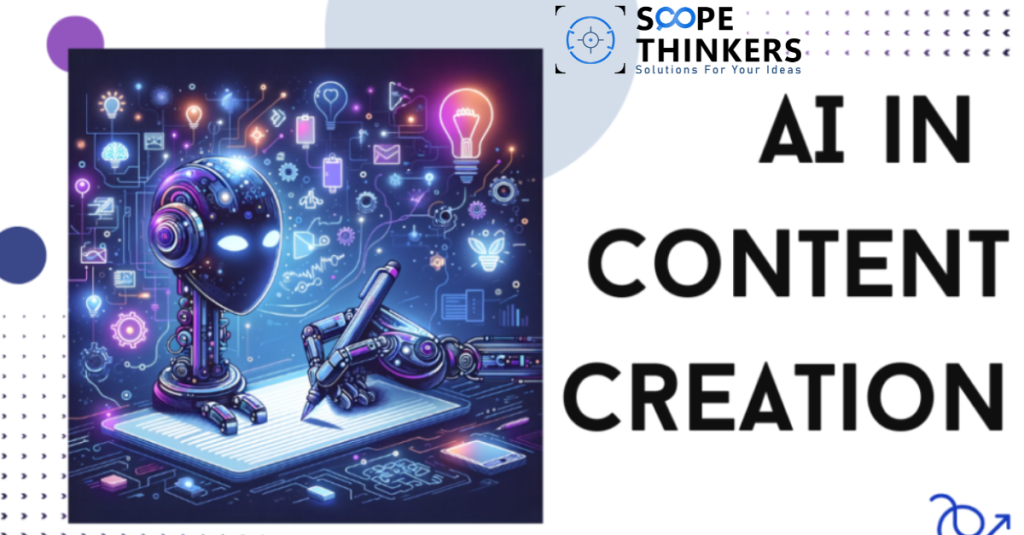
Introduction :
In today’s fast-paced digital landscape, content creation has become more demanding than ever. Whether it’s crafting compelling blog posts, drafting engaging social media updates, or writing persuasive marketing copy, businesses and content creators are constantly under pressure to produce high-quality content efficiently and effectively. Enter AI writing assistants like ChatGPT, which are revolutionizing the way content is created, transforming workflows, and empowering writers with new tools and capabilities.
The Evolution of AI Writing Assistants
AI writing assistants represent the next frontier in content creation, leveraging the power of artificial intelligence and natural language processing (NLP) to assist writers at every stage of the content creation process. While early iterations of AI writing assistants were limited in their capabilities, recent advancements in machine learning and NLP have led to the development of more sophisticated and capable models, such as ChatGPT.
Understanding ChatGPT: A Breakthrough in AI Writing
At the forefront of this revolution is ChatGPT, a state-of-the-art language generation model developed by OpenAI. Built upon the foundation of the GPT (Generative Pre-trained Transformer) architecture, ChatGPT is trained on vast amounts of text data from the internet, enabling it to generate human-like text based on a given prompt or context. What sets ChatGPT apart is its ability to understand and generate coherent and contextually relevant responses, making it an invaluable tool for content creators across various industries.
Empowering Content Creators with ChatGPT
So, how exactly is ChatGPT revolutionizing content creation? Here are some ways in which AI writing assistants like ChatGPT are empowering content creators:
- Efficiency and Productivity: By automating repetitive tasks such as brainstorming ideas, generating outlines, and drafting content, ChatGPT helps writers save time and focus on higher-value creative tasks. This increased efficiency allows content creators to produce more content in less time, ultimately boosting productivity and output.
- Enhanced Creativity and Inspiration: ChatGPT serves as a source of inspiration and creativity for writers, providing fresh perspectives, novel ideas, and creative suggestions that can spark new concepts and directions for content creation. Its ability to generate diverse and contextually relevant content prompts opens up new possibilities for experimentation and innovation in writing.
- Improving Writing Quality and Consistency: With its natural language understanding capabilities, ChatGPT helps writers improve the quality and consistency of their writing by providing real-time feedback, suggestions, and corrections. From refining sentence structures to enhancing tone and style, ChatGPT acts as a virtual writing coach, helping writers refine their craft and produce polished content.
- Personalization and Customization: ChatGPT can be customized and fine-tuned to suit the specific needs and preferences of individual writers and organizations. By training ChatGPT on domain-specific data or fine-tuning its parameters for particular writing tasks, content creators can tailor its responses to align with their brand voice, tone, and style, ensuring a cohesive and personalized content experience.
Challenges and Considerations
While AI writing assistants like ChatGPT offer numerous benefits, they also raise important considerations and challenges, particularly in the areas of ethics, accuracy, and bias. It’s essential for content creators to use AI writing assistants responsibly, critically evaluating their outputs, verifying information, and ensuring that the content aligns with ethical standards and guidelines.
Looking Ahead: The Future of AI Writing Assistants
As AI technology continues to advance, the future of AI writing assistants looks promising. We can expect to see further improvements in language understanding, creativity, and customization capabilities, as well as the integration of AI writing assistants into existing content management systems and workflows. With continued innovation and collaboration between AI researchers, developers, and content creators, AI writing assistants like ChatGPT will play an increasingly integral role in shaping the future of content creation.
Conclusion:
In conclusion, the rise of AI writing assistants like ChatGPT represents a paradigm shift in content creation, offering unprecedented opportunities for efficiency, creativity, and innovation. By harnessing the power of AI, content creators can unlock new possibilities and push the boundaries of what’s possible in writing and storytelling. As we embrace this new era of AI-driven content creation, let’s continue to explore, experiment, and collaborate to unlock the full potential of AI writing assistants and elevate the art of content creation to new heights.

